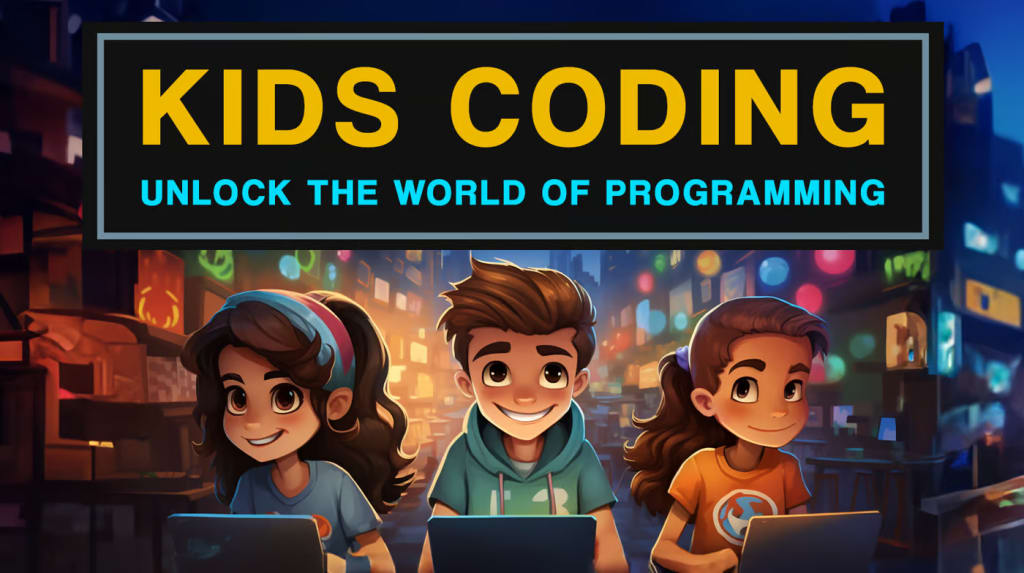
Kids should learn coding for several important reasons:
Critical Thinking and Problem Solving: Coding teaches children how to break down complex problems into smaller parts and logically work through them. This helps them to solve real-life problems.This fosters critical thinking and analytical skills from a young age.
Creativity and Innovation: Coding encourages creativity by allowing kids to create their own programs, games, and digital art. It sparks innovation as they experiment with new ideas and solutions.
Future Job Opportunities: In our increasingly digital world, coding skills are becoming essential across many industries. Learning to code early gives kids a head start in understanding technology and prepares them for future careers in fields like software development, robotics, and data science.
Understanding Technology: Coding provides insight into how technology works. It helps children understand the devices and software they use daily, empowering them to be more than just consumers but also creators and innovators.
Improves Math and Logical Thinking: Coding involves mathematical concepts such as variables, conditions, and algorithms. By practicing coding, kids reinforce their math skills and develop logical thinking abilities.
Collaboration and Communication: Coding often involves working in teams to solve problems or develop projects. It teaches kids how to collaborate effectively, communicate their ideas, and work towards a common goal.
Persistence and Resilience: Coding requires perseverance. Kids learn to debug their programs (fix errors), iterate on their designs, and not give up when faced with challenges. This builds resilience and a growth mindset.
Digital Citizenship: Learning coding also involves understanding concepts like internet safety, cyber security, and ethical considerations in technology use. It promotes responsible digital citizenship.
Empowerment and Independence: Coding empowers kids to take control of technology. They can customize programs, create tools to solve personal problems, and express themselves through digital mediums.
Cross-Disciplinary Skills: Coding integrates various disciplines such as math, science, and art. It encourages interdisciplinary thinking and helps kids see connections between different subjects.
Adaptability and Agility: Technology evolves rapidly, and coding teaches kids to adapt to new tools and programming languages. They learn to be agile learners, capable of quickly grasping and applying new concepts.
Global Perspective: Coding is a universal language. Kids can collaborate with peers from around the world on coding projects, fostering cultural understanding and global awareness.
Career Preparation: Beyond traditional tech roles, coding skills are valuable in diverse careers, including medicine, finance, and even creative industries like digital design and media production.
Early Introduction to STEM: Coding serves as a gateway to other STEM (Science, Technology, Engineering, and Mathematics) fields. It ignites interest in science and engineering by demonstrating real-world applications of these subjects.
Fun and Engaging: Learning to code can be enjoyable and rewarding. Kids can see immediate results as they create animations, games, and interactive stories, making learning a playful experience.
Problem-Solving in Real-Life Contexts: Coding projects often simulate real-life scenarios, encouraging kids to think about how technology can solve everyday problems, from automating tasks to improving efficiency.
Promotion of Logical Sequencing: Coding teaches the importance of sequencing and order in tasks. This skill is transferable to many aspects of life, from organizing schedules to following step-by-step instructions.
Entrepreneurial Skills: Coding nurtures an entrepreneurial mindset by enabling kids to develop and market their own software ideas. They learn about product development, user feedback, and iterative improvement.
Teaching kids to code prepares them for a technology-driven future, enhances their problem-solving skills, and nurtures their creativity and innovation capabilities.
By introducing coding at a young age, children not only gain technical skills but also develop a range of cognitive, social, and emotional abilities that are crucial for success in the 21st century
About the Creator
Anderson
I am a business man. I do trading. I like to know about new thing around the world. I like reading and writing.
Enjoyed the story? Support the Creator.
Subscribe for free to receive all their stories in your feed. You could also pledge your support or give them a one-off tip, letting them know you appreciate their work.





Comments
There are no comments for this story
Be the first to respond and start the conversation.